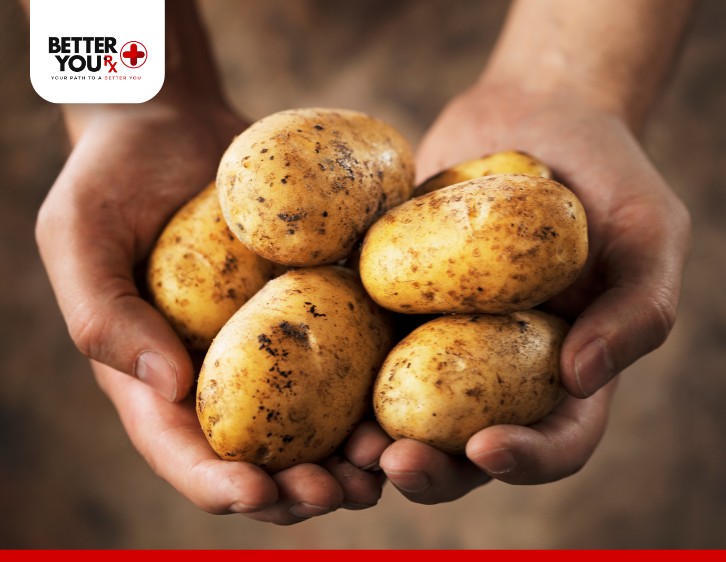Managing diabetes effectively requires an understanding of how various foods influence blood sugar levels. Potatoes, a widely consumed staple, often spark debate among nutritionists and health professionals due to their carbohydrate content and potential effects on glycemic control. This article aims to delve into the relationship between potatoes and diabetes management, exploring their nutritional value, preparation methods, potential health benefits, and the importance of moderation in dietary choices.
Nutritional Profile of Potatoes

Potatoes are recognized for their versatility and comfort in various cuisines. Understanding their nutritional profile is essential for individuals managing diabetes:
- Carbohydrates: Potatoes are primarily composed of carbohydrates, which can impact blood sugar levels when consumed. A medium-sized potato (approximately 150 grams) contains about 30 grams of carbohydrates. However, the type of carbohydrate and cooking method can significantly influence the glycemic response.
- Fiber: Particularly when eaten with the skin, potatoes are a good source of dietary fiber, offering about 2 grams per medium potato. Fiber slows digestion, which can help moderate blood sugar spikes after meals.
- Vitamins and Minerals: Potatoes are rich in essential nutrients, including:
- Vitamin C: A powerful antioxidant that boosts immune function and promotes collagen synthesis.
- Potassium: Important for maintaining healthy blood pressure levels and proper muscle function.
- Vitamin B6: Essential for brain health and metabolic processes.
Glycemic Index of Potatoes

Glycemic Index (GI): A scale that indicates the speed at which foods elevate blood sugar levels. Potatoes generally have a moderate to high GI, depending on the type and cooking method. For example:
- Boiled Potatoes: Typically have a lower GI compared to baked or fried potatoes. Boiling retains more nutrients and results in a lower glycemic response.
- Baked Potatoes: Often have a higher GI because baking can break down starches into sugars more quickly, leading to a more rapid increase in blood glucose levels.
- Fried Potatoes: French fries and other fried potato products have a high GI and added unhealthy fats, making them less suitable for diabetes management.
Choosing lower-GI cooking methods, such as boiling or steaming, can help individuals with diabetes better manage their blood sugar levels while still enjoying potatoes.
Health Benefits of Potatoes
While potatoes can affect blood sugar levels, they also offer several health benefits when consumed in moderation:
- Antioxidant Properties: Potatoes contain antioxidants, such as flavonoids and carotenoids, which can help combat oxidative stress and inflammation in the body.
- Gut Health: The fiber in potatoes, particularly resistant starch found in cooked and cooled potatoes, can support gut health by promoting the growth of beneficial gut bacteria.
- Satiation: Potatoes are filling and can help individuals feel satisfied, potentially reducing overall calorie intake when eaten in moderation.
Glycemic Control and Resistant Starch
Recent studies have shown that the effects of potatoes on blood sugar levels may be more complex than previously thought. Resistant starch, found in cooked and cooled potatoes, can improve insulin sensitivity and lower blood sugar responses. When potatoes are cooked and then cooled, some of the starches convert to resistant starch, which is less digestible and has a lower glycemic impact.
Research published in the American Journal of Clinical Nutrition found that individuals consuming resistant starch had improved blood sugar control and increased feelings of fullness compared to those consuming regular starches. This indicates that the preparation and cooling of potatoes can enhance their benefits for diabetes management.
Portion Control and Moderation

Portion control is vital for managing carbohydrate intake and preventing blood sugar spikes. Here are some strategies for incorporating potatoes into a diabetes-friendly diet:
- Limit Serving Sizes: Aim for a serving size of about 1/2 to 1 cup of cooked potatoes, depending on your overall carbohydrate goals for the meal.
- Pair with Protein and Healthy Fats: Combining potatoes with protein (such as chicken, fish, or legumes) and healthy fats (like olive oil, nuts, or avocado) creates a balanced meal that slows digestion and helps stabilize blood sugar levels.
- Choose Whole Potatoes Over Processed Forms: Opt for whole potatoes rather than processed potato products like chips or fries, which are often high in unhealthy fats and low in fiber.
Other Considerations for Diabetes Management
While potatoes can fit into a diabetes-friendly diet, additional factors may influence blood sugar management:
- Overall Diet Quality: Focus on a balanced diet rich in whole grains, vegetables, lean proteins, and healthy fats. A well-rounded diet can improve overall blood sugar control.
- Physical Activity: Regular exercise helps improve insulin sensitivity and can mitigate the impact of carbohydrate-rich foods on blood sugar levels.
- Monitoring Blood Sugar Levels: Regular monitoring can help individuals understand how their bodies respond to different foods, allowing for better meal planning and adjustments.
Conclusion
Effectively managing diabetes involves a multifaceted approach, where dietary choices play a pivotal role. Potatoes can be included in a diabetes-friendly diet when prepared thoughtfully, providing essential nutrients while maintaining blood sugar control. The key lies in moderation and mindful consumption, ensuring they complement a balanced diet.
In conjunction with dietary management, medications like Ozempic are invaluable for individuals striving to regulate their blood sugar levels. Ozempic mimics the hormone GLP-1, enhancing insulin secretion and reducing glucose production in the liver. This dual action not only supports glycemic control but also aids in weight management—an essential factor for many living with type 2 diabetes.
At Better You Rx, we understand the challenges of accessing effective diabetes medications. We offer affordable options that empower individuals to take charge of their health journey. With a price of $424.99, Ozempic is an accessible solution for those looking to improve their diabetes management.
By choosing Better You Rx, you can find quality medications like Ozempic at competitive prices, enabling you to focus on achieving better health outcomes. In summary, integrating potatoes into your diet can contribute positively to diabetes management when combined with effective medications like Ozempic. Always consult with healthcare professionals to tailor your diet and medication plan to your individual needs. With informed choices and the right support, you can navigate the complexities of diabetes while enjoying the foods you love.



